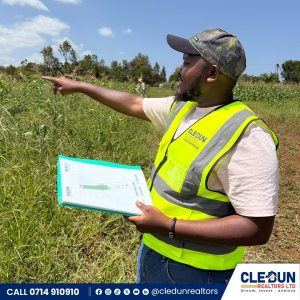By Isabella Maua
Limited access to justice, ignorance and discriminatory customs remain a hindrance to Kenyan women’s right of land inheritance and ownership.
Though roughly 70 to 90% of all wealth in Africa is being generated through land, women still own less than 10% of land in the 21st century.
Kenya is no exception, with the Mt Elgon region in Bungoma County being one of the most hit areas where women’s land rights are hardly implemented.
During a meeting held by Kenya Red Cross Bungoma, village elders and ward administrators from Cheptais and Kopsiro admitted to being ignorant of legal land matters.
“It is true that there have been many cases of gender-based violence in this region, especially land disputes where women have been left out,” admitted one of the village elders from Cheptais.
He added: “It, however, becomes difficult for us to be fully involved in such cases because we lack knowledge and are tied down by our traditions as Sabaots.”
According to the indigenous Sabaot traditions and customs as narrated by Ngeywo, one of the oldest village elders in Kopsiro, girls are not counted as children during wealth and land succession, and as such, giving them a portion of their father’s land is unheard of and, if anything, an abomination.
“Girls will grow and are supposed to get married. When they get married, they own the land at their husband’s home. It is therefore very unfair to us when you tell us that the law requires them to inherit another lad back at their father’s home; we cannot allow that!”
Ruth Wanyonyi, a lawyer working with Kenya Red Cross Bungoma, however, revealed to them that the Kenyan constitution recognises both boys and girls as children and rightful heirs and heiresses to their parents’ property.
“Many women are experiencing gender-based violence from close relatives, especially their brothers, and you as village elders and local administrators should be empowered with knowledge to save them from the agony,” she reiterated.
Wanyonyi further educated and exemplified to the local administrators the legal process of land succession and the importance of acquiring a land title deed.
“Now that you are fully equipped with this vital knowledge, it is your responsibility to enlighten the community and ensure zero tolerance for GBV that is caused by land injustice,” she challenged them.
Philip Kipsang, Deputy County Commissioner for Cheptais, observed that some cases of GBV that have been overlooked include girls not being taken to school, land disputes and female genital mutilation that is still practised as a top-secret ritual.
Deputy County Commissioner for Kopsiro, Langa Kadilo, accentuates the need to eliminate illicit liquor.
“The first step to ending GBV is by doing away with locally brewed illicit liquor being sold in the interior parts of these areas,” Kadilo challenged the local administrators.
He also vowed to work closely with the National Police Service to follow up on the reportedly lost files of defilement and rape cases in Kopsiro, citing foul play mostly caused by kangaroo courts, which are illegal.
Wanyonyi cautioned the village elders to shun taking part in any arbitrary action in matters related to defilement and rape, citing kangaroo courts as illegal and punishable by law.
Dr Daniel Mulongo, HIV and Sexually Transmitted Infections Coordinator for Cheptais and Kopsiro, advocated for the local administrators to educate youths on sex and pregnancy matters as an initial step to end teenage pregnancies.
“Ensure the community knows the importance of reporting defilement cases within 72 hours to the nearest hospital,” he highlighted.
Adding that this helps eliminate any infections of STI or HIV, prevent fistula and also avoid unwanted pregnancies.
He further encouraged men to report to police or go to hospital whenever they are assaulted, citing that the data issues are very low due to the stigmatisation.
“It is very devastating that many incest cases, especially where the girl child is a victim, never go further than the homestead for fear of tarnishing the name of the perpetrator and protecting the family name,” he bemoaned.
According to the available data, the HIV prevalence rate in Kopsiro and Cheptais sub-counties is 3.8%, with 108 new infections annually and the total population living with HIV being 1251 as of June 2025.
Irresponsible parenting has also been highlighted as a key point leading to defilement cases.
Richard Mutua, AP Commander for Cheptais, observes: Many parents neglect their daughters and send them to the market late in the evening with instructions that they should bring food home. How else do you want them to do that if not by befriending some older men who will in turn defile them?”
Margaret Wanyonyi, County Coordinator, Kenya Red Cross Bungoma, urged the village elder and local administrators to work in tandem with parents to address teenage pregnancies in their areas of jurisdiction.
“The clergy who are among us today should be at the forefront to bring together families through frequent meetings in the village, incorporating parents,” she reiterated.
The legal aid clinic was sponsored by Kenya Red Cross and incorporated over 250 members from local administration, Ministry of Health officers and Pro-bono lawyer.
We no doubt value our culture and traditions, but women should not be subjected to any form of violence as a measure of protecting backward customs.
It remains our responsibility as stakeholders in society to be the voice of the voiceless and enlighten the ignorant in our communities.







More Stories
Safaricom Director Honored with Global Social Innovation Award
Cledun Realtors Expands Thika Housing Project with Prestige Court Phase II
Former Ichagaki MCA Dr. Mwangi Joins UDA for Murang’a Senatorial Race